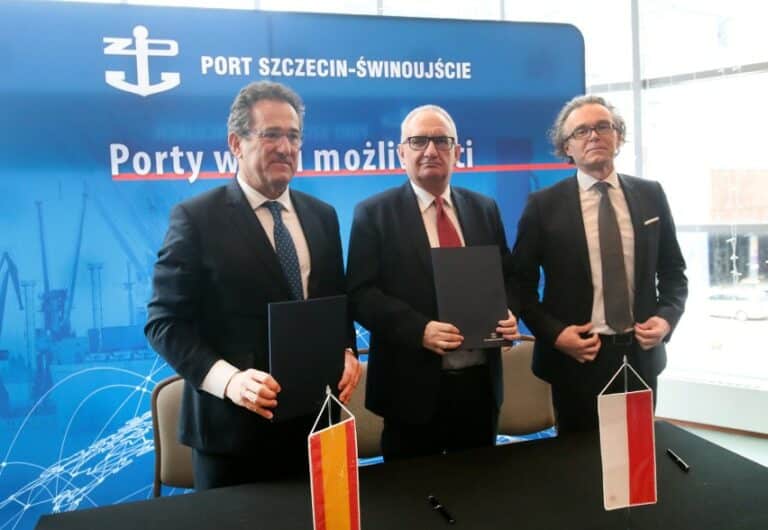Obtaining Polish citizenship
Sylwia Ziemacka talked to Paweł M. Nowak, Attorney-at-law, Zespół Kancelarii Radców Prawnych Anety Ciechowicz-Jaworskiej, Bartłomieja Ślażyńskiego i Pawła Nowaka
HOW CAN POLISH CITIZENSHIP BE ACQUIRED?
Since Poland joined the European Union and a Polish passport thus became an EU passport, which guarantees its holder a number of rights in all member states, the value and strength of Polish citizenship has increased significantly.
The criteria for acquiring Polish citizenship have been tightened. For example, the possibility of acquiring citizenship by marrying a Polish citizen was limited by introducing a number of restrictions. Connections with Poland and Polish culture have also been emphasized as general requirements by the Polish regulator.
However, there are still at least several ways to acquire Polish citizenship. These issues are regulated by the Act of April 2, 2009 on Polish citizenship.
The first way is by birth to parents of whom at least one has Polish citizenship. This is the so-called ‘right-of-blood’ principle and it works regardless of whether a child is born in Poland or abroad. This happens by virtue of law, by birth. Therefore, many people who were born abroad and one of their parents, grandparents or even great-grandparents, was a Polish citizen, may have such citizenship. It just needs to be officially confirmed by authorities.
Adoption of a child who does not have Polish citizenship by a Polish citizen works in a similar way.
You can also acquire citizenship by being officially recognized as a Polish citizen. This option may be used by foreigners who reside legally in Poland, have integrated into Polish society, speak Polish, have financial resources or a source of income and meet state security considerations. This option is used by refugees, spouses of Polish citizens, expats or people of Polish origin – depending on the case – after one or several years of residency in Poland. In these cases, however, a foreigner must first demonstrate good comprehension of the Polish language and pass a state exam, which is not easy.
WHAT ARE THE CONSEQUENCES OF DUAL CITIZENSHIP FOR FOREIGNERS IN POLAND?
The basic oucome is the ability to treat such a person on an equal footing with other citizens in all aspects of life – whether it is employment, the ability to hold office, participate in elections, access to all benefits and easier travel.
For US or UK citizens, Polish citizenship will be attractive due to the possibility of entering, staying, working and settling throughout the EU, without special permits.
It also makes it possible to seek assistance from Polish and EU consular missions around the World.
These create enormous additional possibilities and conveniences.
ARE THERE ANY RESTRICTIONS?
Of course.
Dual citizenship means obligations and restrictions too.
A foreigner with dual citizenship, one of which is Polish, cannot use their foreign citizenship in Poland, use it to avoid legality or seek assistance from a diplomatic mission of such a foreign country.
Similarly, for example, a Briton who holds Polish citizenship cannot hide behind his Polish passport in the UK or seek assistance from a Polish consular officer against the local authorities.
One must also take into account, for example, the possibility of being called to serve in the military, or the obligation to have an ID card in Poland. The lack of a valid ID card in Poland may result in a fine being imposed.
WHAT KIND OF PROBLEMS MAY BE ENCOUNTERED?
Many people have citizenship of more than one country nowadays. Many Poles hold US or UK citizenship. In return, many people from these countries also hold Polish citizenship. There may be surprises involved.
When leaving Poland, a Polish citizen – even with dual citizenship – should be able to present a Polish passport or an ID card. When living permanently for many years abroad, Polish citizens often forget about this. Passports that have been left in a drawer for many years become invalid. Children of Polish citizens often do not have such a document at all, yet they should. Foreigners with Polish citizenship also forget about this, choosing their “foreign” passports instead.
The winter holiday season means travel and crossing borders. You have hugs at airports and train stations, family holidays, tender farewells and eventually a question from a border guard officer about a Polish passport. The same happens when a foreigner with Polish citizenship decides to spend their vacation overseas.
The practice of the Border Guard – which is not entirely consistent with the law – is that they refuse to allow such people to cross the border on the basis of a foreign passport. It may therefore turn out that one will not be able to return to the country of permanent residence or their citizenship, because the Polish Border Guard will not allow this.
WILL THE FOREIGNER BE ALLOWED TO LEAVE POLAND THEN?
Such a person should be able to leave, but the practices of the Border Guard vary, unfortunately. The Polish Ombudsman has criticized this.
The irregularity of this practice lies in the fact that Polish regulations grant the right to have a passport, they do not impose an obligation. An adult citizen of Poland who resides in Poland is only obliged to have an ID card. Those residing abroad do not need to obtain an ID card.
However, the Border Guard takes a different position, stating that a Polish is always treated by the Polish authorities exclusively as a Polish citizen, regardless of a person having any other citizenship. One must therefore always be able to present a Polish passport or ID card during the border inspection. This goes against practices of similar agencies in other European countries.
They may also consider certain actions as unacceptable and punishable, which are not such elsewhere – the best example is foreigners placing notes, notes or souvenir stamps in their passports.
WHAT ABOUT TRAVELS WITH CHILDREN?
Unfortunately, these perturbations may also apply to children and result in bizarre situations.
For example, a child, a UK citizen, flying to England accompanied by two parents, Polish citizens, might not be able to cross the Polish border. In such cases the child should hold a Polish passport or ID card.
However, more dangerous situations are parental abductions, when one parent removes or retains a child without the consent of the other parent. If the parents have not regulated the custody and child’s citizenship issues, the Border Guard may not prevent a parent from unauthorized border crossing with a child. The child alert as it works in the UK, will not work in Poland.
One needs to be mindful that the provisions of Polish law do not require any separate authorization in cases of a minor traveling under the care of only one parent, or even without parental care. A traveling child is only required to hold a valid passport or ID card depending on the requirements of the destination country.
However, these are in fact only the nuances of having dual citizenship, which certainly do not outweigh the benefits of having Polish citizenship alongside the citizenship of another country. However, it is advisable to regulate all related matters in advance to avoid unpleasant surprises.







